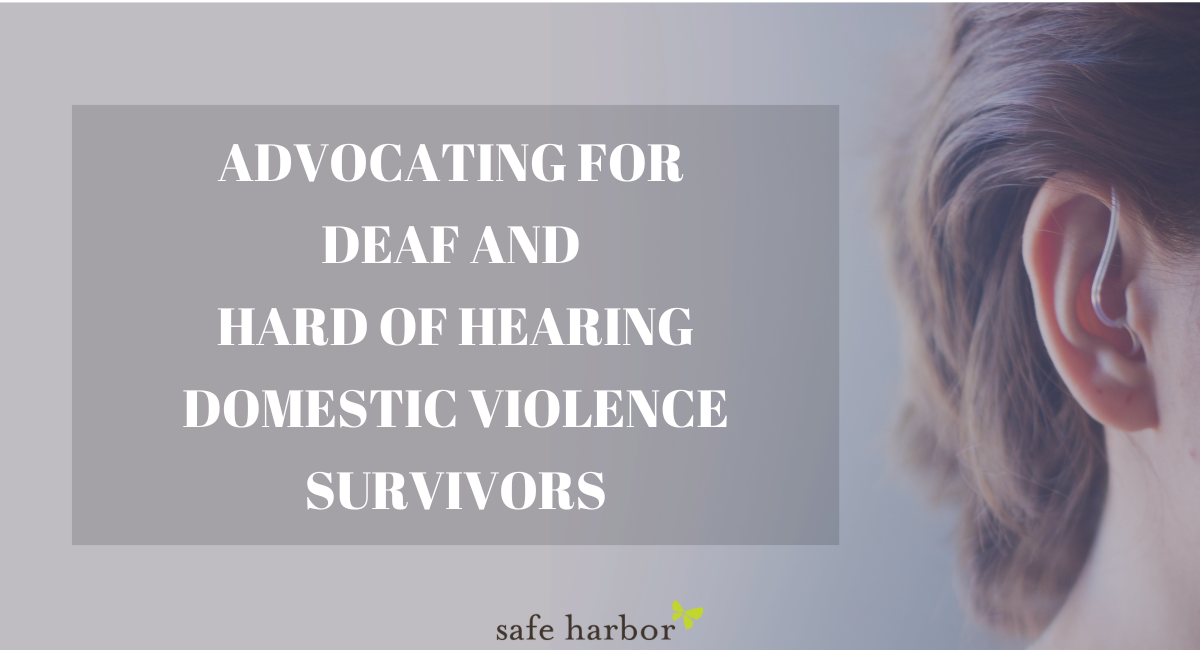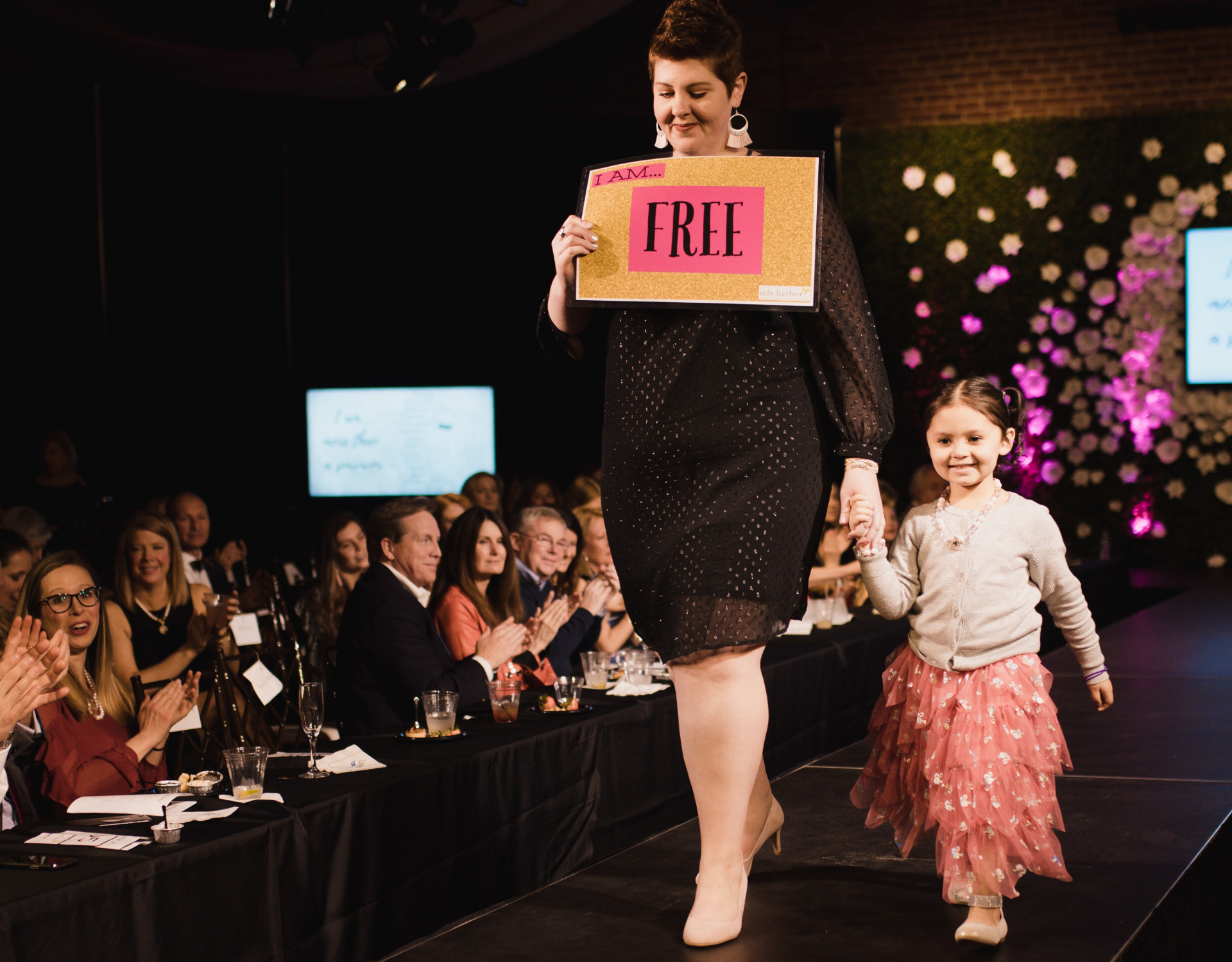In the United States, 1 in 4 women and 1 in 9 men will report experiencing Intimate Partner Violence (IPV). However, rates of IPV are often even higher in the Deaf community with the Deaf population experiencing IPV at a rate that is 1.5 times greater than the hearing population.
Often, those who are Deaf also experience IPV in unique ways compared to survivors who are hearing. Intimidation may manifest as an abuser signing aggressively or very close to the victim’s face or overusing stomping and pounding to get the victim’s attention. Emotional abuse may include an abuser insulting the deaf victim’s ASL skills or invalidating their Deaf identity by calling them “hearing”. Stalking and surveillance may also be a greater risk if the abuser has access to the Deaf survivor’s electronic communication methods such as their text messages or video phone logs.
In addition, hearing privilege is very often used as a means for an abuser to further establish power and control over a Deaf victim. This may include behaviors such as:
- Not informing the Deaf victim when people try to call
- Disconnecting the WI-FI or Video Phone to prevent communication
- Excluding the victim from important conversations and financial decisions made verbally
- Excluding the victim from conversations with other hearing people or relaying false information when providing ASL interpretation
- Speaking negatively about the Deaf community or disallowing access to Deaf culture
- Not allowing children to communicate with the Deaf victim via sign language
These barriers are often greatly compounded when the Deaf survivor is attempting to flee an abusive relationship. Reporting abuse is more difficult due to communication barriers. If the police are involved, the abuser may attempt to interpret for the survivor and prevent communication between the survivor and the police. In addition, many agencies for hearing survivors of IPV do not provide communication accessibility for Deaf survivors (i.e., ASL interpreters, accessible hotlines, and video phones. A study done by DomesticShelters.org found that sign language, while being the third most common language provided in the U.S., is only available in 5.3% of shelters.
Deaf survivors may also avoid treatment due to concerns about confidentiality and safety. The close-knit Deaf community can cause reduced anonymity and fears of confidentiality among Deaf providers/ASL interpreters who belong to the same social circles as their clients. Additionally, a Deaf survivor may have a distrust of healthcare systems run largely by and for hearing people due to the history of paternalism, bans on sign language, and eugenics that our healthcare systems have.
At Safe Harbor, we are committed to providing services for all victims of domestic violence. Deaf survivors who are seeking our services can feel at ease knowing that we provide an online intake form for those seeking community-based services and have ASL video interpretation through our Luna language services for those seeking shelter services through our hotline: 1-800-291-2139.
If you are experiencing domestic violence, a great first step to take is creating a Safety Plan. A Safety Plan is a plan of ways that you can stay safe and reduce potential harm when experiencing domestic violence. To create a Safety Plan that is best for you please refer to our website or call our crisis line at 1-800-291-2139.




